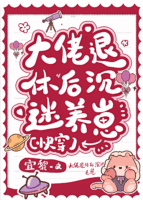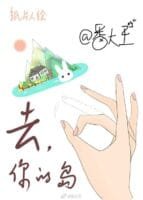Raising Kids C33
by MarineTLChapter 33: The Heartless Scholar Who Abandoned His Wife and Child (Arc End)
Xie Hui’s medical skills were indeed remarkable. Not only did he restore the emperor’s health, but the imperial harem also welcomed several more children.
After realizing that his grown-up sons were all unsuitable as heirs, the emperor quietly decided to cultivate new ones.
Having learned from past failures in educating his children, this time, he brought the young princes to his side from an early age and carefully guided them himself.
Although Xie Hui had left the capital, when the emperor discovered that the promising young scholar Xie Mo he had his eyes on was actually Xie Hui’s son, he began to value him greatly.
The emperor raised all his young princes equally, ensuring they wouldn’t fight for power in the future.
After all, their empire was vast and in dire need of rebuilding. Rather than fighting for the throne, it was better for them all to become dedicated workers for the nation!
Even with a growing number of children, the emperor still couldn’t figure out why an ordinary modern-day office worker like him had suddenly transmigrated into this historical dynasty—right into the body of a famously debauched emperor.
His only memory of this emperor from history books was that he was so depraved he was said to have eaten human flesh, which left a strong impression on him.
(T/N: The emperor mentioned here is most likely Emperor Zhou of Shang (商纣王), the infamous last ruler of the Shang Dynasty.)
Unlike other knowledge he had learned in school, which he promptly forgot after entering the workforce.
When he first transmigrated, he was ambitious—he wanted to achieve great feats, advance technology, and make a name for himself in history!
But within a month of transmigrating, he realized—he didn’t actually know how to do anything.
Make soap? He had read about it once but had already forgotten the method.
Make cement? His teacher had probably mentioned it, but the memory was too blurry.
Make gunpowder? Fireworks hadn’t even been invented yet.
Make paper? He only remembered it involved trees, and that was because of the phrase, “Save trees, use less paper.”
Make glass? As a modern office worker who only thought about weekends, holidays, and salary raises, he had no idea.
He was just an ordinary person. After transmigrating, he realized that aside from the memories of his comfortable modern life, he was even more useless than the original emperor—at least the original could compose poetry.
After several failed attempts at innovation, the emperor accepted reality. At the very least, he didn’t want to go down in history as a disgrace. So from the moment he transmigrated, he made it his mission to crack down on corrupt officials!
Turning a crumbling empire on the brink of collapse into a thriving one wasn’t something an ordinary corporate worker like him could achieve alone.
And since his sons were all of average talent, he feared they might follow in the footsteps of the original emperor. So, he began vigorously promoting scholars from humble backgrounds.
If a ruler was mediocre but had capable ministers, the nation could still survive. Who knew? Maybe one of his descendants would turn out to be a once-in-a-century genius.
Having learned from the failures of his older sons, when his younger princes reached schooling age, the emperor appointed Xie Mo as their Grand Tutor.
Since Xie Mo’s father had raised him so well, the emperor figured Xie Mo would be just as capable at teaching children.
Furthermore, he prohibited the imperial consorts from meddling in the young princes’ upbringing. Where power and benefits existed, jealousy and strife followed. While he could treat all his sons equally, the consorts might not.
So, the emperor planned to keep the little princes under his strict guidance, training them to be competent workers for the empire before allowing them to reconnect with their mothers.
Outsiders believed that Xie Mo only gained the emperor’s favor because he was the son of a famous physician, and they occasionally gossiped about it.
Whenever Xie Mo heard such remarks, he merely smiled.
Even he believed that his success was largely thanks to having such a good father.
This was true for Xie Mo, and naturally, it applied to Li Shu as well.
At social gatherings, some noblewomen would occasionally remark that her husband was too devoted to his father, always following his advice. Didn’t she find it stifling?
Maintaining perfect poise, Li Shu smiled and responded to those who echoed the sentiment:
“My husband listens to my father-in-law. He refuses to take concubines, stays faithful, comes home every day, and hands over his salary. What could I possibly complain about?”
When Xie Hui received a letter from his son mentioning this amusing anecdote about his daughter-in-law, he found it quite funny.
Xie Mo did not disappoint the emperor’s expectations. He educated each of the young princes well, shaping them into respectful, talented individuals, each excelling in different fields.
Previously, when most of the princes were incompetent, the court was deeply worried.
Now, with every prince being a well-rounded scholar and warrior, the ministers were in turmoil again—there were too many good choices! Who should they support as crown prince?
Some ministers even began considering which of their daughters might be suitable for marriage, hoping to secure a future position as the Empress Dowager.
But before they could act on their schemes, the emperor divided the empire into several regions and sent the princes to govern them.
He declared that the one who ruled best would be named Crown Prince.
“The empire needs rebuilding! Marriage can wait! First, prove yourselves as competent workers!”
After sending his sons off, the emperor leaned back on his dragon throne, crossing his legs, already envisioning his carefree retirement.
Thanks to Xie Hui’s medical care, his body was in excellent shape. Despite his age, he was still more vigorous than many young men. He could keep ruling if he wanted to.
But having been a corporate slave for two lifetimes—first as a modern worker, now as an emperor—he longed for retirement, to finally enjoy the easygoing life of a true noble.
From his perspective, though he had no extraordinary talents and no major political achievements, at least he hadn’t ruined anything.
Surely, history would remember him.
And once he handed over the throne to his successor, he would retreat to his private residence to compose poetry—maybe even secure himself a spot in future literature textbooks.
That being said, both Xie Hui and his son were quite skilled at educating children. While he personally had no desire to have more, he intended to tell the next emperor to entrust any offspring to the Xie family for education.
No, not just the next emperor—he planned to tell all his sons: if they had sons, they should be sent to Xie Mo for instruction; if they had daughters, they should be entrusted to Li Shu.
With such an abundance of talent, how could their dynasty not thrive?
To everyone’s surprise, the princes did indeed govern their assigned regions well, performing equally in terms of political achievements.
However, upon returning to the capital, none of them wanted to inherit the throne, each one deferring to the others.
While the ministers thought this was merely humility, the emperor—who, at heart, was the ultimate lazy fish—immediately saw through their true intention: they just wanted to slack off.
So he picked the one he considered to have the best temperament, handed him the imperial seal, and happily moved to his villa.
How could there be two lazy fish in the imperial family? He was the older one—no one was going to compete with him for that title!
In the end, the emperor did secure a place in the history books. He became known as the ruler who cracked down the hardest on corrupt officials. Many of the walls, dams, and other structures built during his reign remained as historical relics.
People often joked that he truly embodied the Chinese obsession with infrastructure.
His dynasty also became infamous for making students cry during history exams.
Among the figures of that era, there was the legendary “Medical Immortal” Xie Hui, who had disciples all over the land. The brilliant Prime Minister Xie Mo. The renowned educator and founder of girls’ schools, Li Shu. And Xu Ying, a female scholar and one of the era’s great romantic poets. All of them were key figures in exams.
And of course, there was the emperor himself—known for writing an average of twenty poems a day in his later years, yet not a single one was considered worthy of memorization.
As Xie Hui’s health declined in his later years, he finally returned to the capital to live with Xie Mo. He had always kept his whereabouts a secret, not wanting to deal with that old and nagging emperor.
One night, Xie Hui passed away peacefully in his sleep, without any illness or pain.
When he returned to the system space, just like in the previous world, he converted all the rewards from his mission into merit and bound them to Xie Mo’s soul.
With that merit, Xie Mo’s next life wouldn’t be too bad.
Xie Hui couldn’t shake the feeling that doing these missions was basically just working for those little brats.
But even though he thought that way, he had no intention of rejecting the missions. Since the past two children had been rather adorable, he decided to keep working for free.
“System, who’s the mission target in the next world?”
Though Xie Hui was a troublemaker, the Main God didn’t discriminate against him. His system was the same type as other hosts—one that could grow and evolve.
After experiencing two worlds, the system had grown much more intelligent. When Xie Hui asked, it quickly checked and replied:
“Host, in the next world, your mission target is a little girl. The commissioner is waiting outside. Would you like to meet them?”
Xie Hui nodded slightly. It wouldn’t hurt to meet them.
“Hello, are you the one who can help me complete my mission?”
The person who walked in wore a striped suit. He appeared to be older, with graying hair at the temples and fine lines at the corners of his eyes. His demeanor was mature and exuded the air of a powerful figure.
“Yes, you can tell me your wish. I can help make up for any regrets while carrying out the mission.”
The man slowly recounted his story to Xie Hui.
He had once deeply loved his wife. However, she died in childbirth, and he blamed their daughter entirely for her death.
He never showed his daughter any affection and saw her as the murderer who took his wife away.
He buried himself in work, completely neglecting his daughter. It wasn’t until she grew up and brought a man home, saying she wanted to marry him, that he finally paid attention.
Though he had never cared much for his daughter, he still couldn’t accept leaving her in the hands of a man who was clearly a lowlife.
The one and only time his daughter ever defied him was for this marriage.
Enraged, he severed ties with her.
The next news he received about his daughter was of her death. She had died on the operating table and had signed an organ donation agreement before passing.
To make matters worse, the recipient of her organs was the first love of that very same lowlife she had married.
He refused to believe that his healthy, lively daughter had died by accident.
But before he could uncover the truth, he died in a car accident.
In truth, he had long since regretted everything. Watching his business partners struggle with their rebellious children—kids with dyed hair, short skirts, and attitude—he began to realize that maybe the problem had never been his daughter, but rather his own parenting.
His overwhelming regret after death led him here.
He wanted Xie Hui to replace him and be a good father. He no longer had the face to see his daughter again.
If possible, he also hoped that his daughter’s future husband would be a good man, someone who would truly treat her well, and not someone scheming like that lowlife.
Xie Hui nodded, keeping all of the commissioner’s wishes in mind.
“Of course. I’ll take the job.”
(Arc End)








![Cannon Fodder Refuses to Be a Stepping Stone for His Cub [QT] Cover](https://marinetl.xyz/wp-content/uploads/2025/06/228114s_x16_drawing-143x200.png)

0 Comments